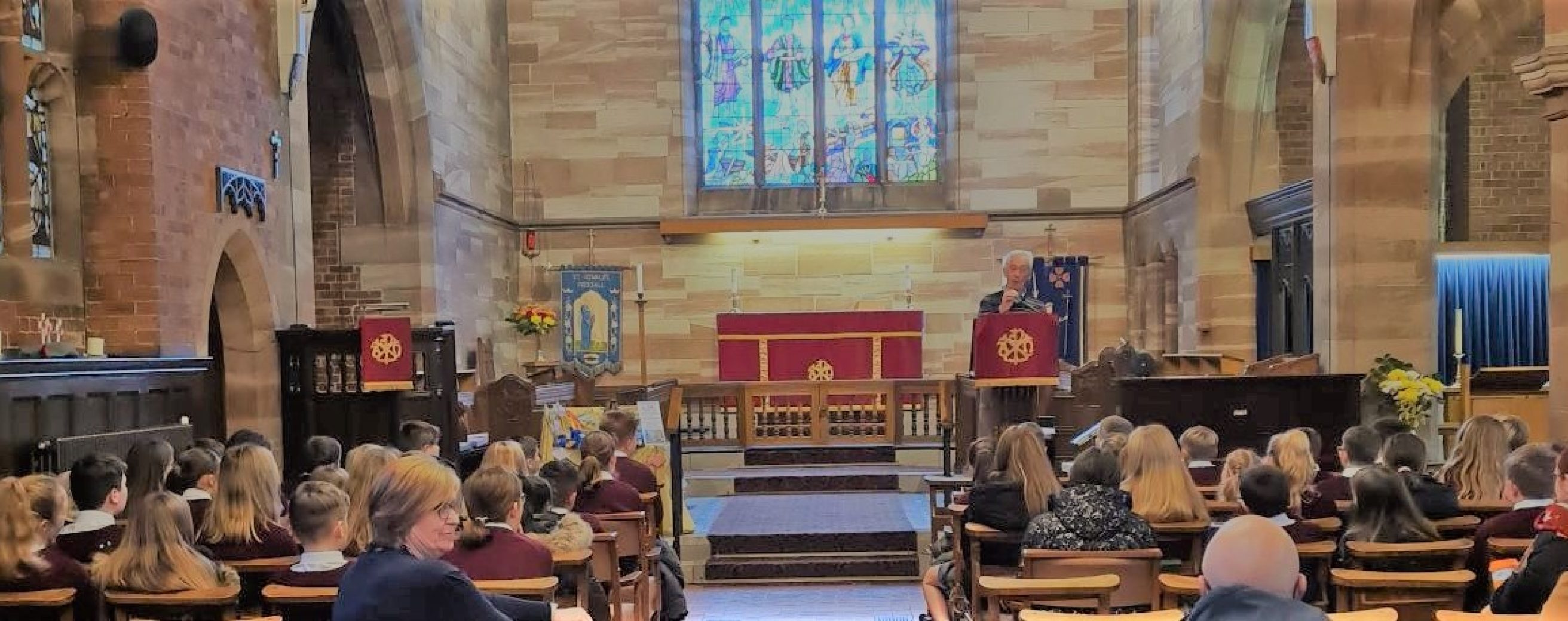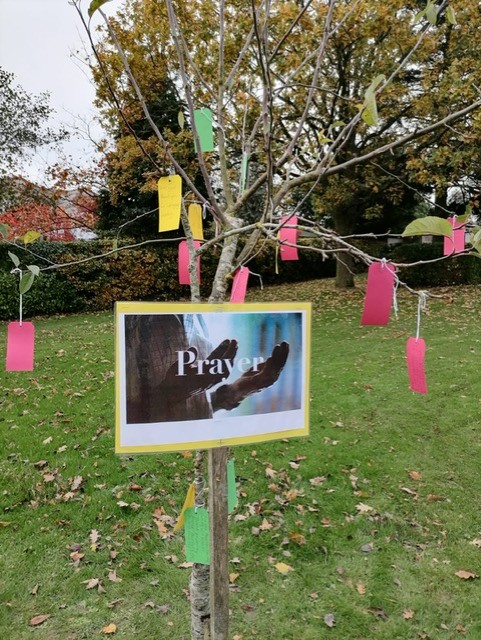Religious Education
Our vision for Religious Education at Saint Aidan’s is to serve our local community by providing a balanced religious education rooted in Christian values, in accordance with our Trust Deed.
‘I have come that they might have life, and have it in its fullness,’ our school’s chosen scripture, is at the heart of all we do. This verse inspires us to nurture students in their knowledge and understanding of the role of faith in their lives and the lives of others, as well as encouraging them to flourish as curious, courageous, individuals, both in school and in later life. It enables students to explore their own spirituality whilst developing respect for and sensitivity towards others within the global community.
Key Stage 3
At Key Stage 3, Religious Education is largely based upon the Blackburn Diocese programme of study, Illuminating Pathways. Students gain an understanding of how different beliefs and values affect our lives and develop an awareness of the influence religion has in shaping contemporary British society. Students are introduced to world religions as living and contemporary faiths, while respecting and critically engaging with beliefs and practices.
Our new Active Christian Ethics (ACE) Award has been established to study faith in action and encourage our students to reflect on the contributions inspirational people have made to society before crafting their own campaign. Our aim is for students to ‘have life in all its fullness’ by living out Christian values.
The curriculum is designed to challenge all students. Students are taught in mixed ability groups with everyone accessing the same curriculum. All students are supported by their teacher to achieve their potential through the scaffolding of work and with stretch and challenge. By the end of Key Stage 3 students will have deepened their knowledge of religious and non-religious world views, better understanding the similarities and differences between and within them. They will become increasingly confident in evaluating different viewpoints and reaching justified conclusions, based on evidence.
Developing student’s subject literacy is a priority within the RE department as it increases confidence and engagement in lessons. Students are supported in developing their skills in reading, writing and speaking. Teachers use subject specific terminology from the beginning of Year 7 and students are supported in learning how to pronounce and spell these words until they are mastered.
| Year 7 | Year 8 | Year 9 |
| What is RE? | Who is God? | Religion and Art |
| What does it mean to be a person of faith? | How should we treat others? | Can conflict ever be justified? |
| Did Jesus rise from the dead? | Where in the world is Judaism? |
What is the Impact of the Holocaust on the Jewish Community? |
| Is it fair? | Can religion help in a crisis? | Where in the world is Islam? |
| Faith in Action |
GCSE Christianity Beliefs and teachings |
Religious Studies GCSE
All students at Saint Aidan’s follow an appropriate cirriculumn at KS4. It is one of the four core subjects alongside English, Mathematics and Science. Students follow Specification A which is examined through two 1 hour 45 minute exams at the end of Year 11. Grades can achieve grades 1-9 on this course. The GCSE course is broken down into two components:
Component 1: The study of religions: beliefs, teachings and practices
Component 2: Thematic studies
| Component 1: The study of religions: beliefs, teachings and practices. | Component 2: Thematic studies |
| What's assessed | What's assessed |
| Beliefs, teachings and practices of the following religions: Christianity Islam | Four religious, philosophical and ethical studies themes from the perspectives of the following religions: Christianity Islam |
| Themes to be studied: | |
| Theme A: Relationships and families | |
| Theme B: Religion and life | |
| Theme D: Religion, peace and conflict | |
| Theme E: Religion, crime and punishment | |
| How it is assessed | How it is assessed |
| Written exam: 1 hour 45 minutes | Written exam: 1 hour 45 minutes |
| 96 marks (plus 6 marks for spelling, punctuation and grammar (SPaG)) | 96 marks (plus 3 marks for spelling, punctuation and grammar (SPaG)) |
| 50% of GCSE | 50% of GCSE |
A small number of students are following an alternative course, which allows them to flourish.
Enrichment
The department offers a broad range of extra-curricular opportunities for students. We believe these experiences build on the interest and enjoyment students develop from the taught curriculum and believe they should be accessible to as many of our students as possible.
Visits and workshops are organised for each year group within Key Stage 3 and include trips to organised places of worship and participation in enrichment days such as the Hinduism day for Year 7. We also work with the Holocaust Education Trust who connect us with Holocaust survivors to speak with Year 9. As part of our Personal Development Day curriculum all of our Year 7 students visit our local parish church, St Oswald’s. The Active Christian Ethics Award which cumulates the Faith in Action Unit in Year 7 gives students the opportunity to contribute to the local, national and worldwide community through creating their own campaigns and fundraising activities for charities of their choice.
The department also runs a weekly ‘Active Christian Ethics’ club. KS4 students are supported to run the club and organise fundraising activities and campaigns, raising awareness on important issues for our students. The club is increasingly popular with our students and help to raise a large amount of money each year for various charities.
Further Study
GCSE Religious Studies is good preparation for all careers that involve working with people. It is particularly useful for students interested in careers in law, the police, medicine, teaching and working overseas.
Department Staff
| Miss K Patterson | Subject Leader for Religious Education |
| Miss G Barks | Religious Education Teacher and Head of Year 9 |
| Mrs K Ashton | Religious Education Teacher |



